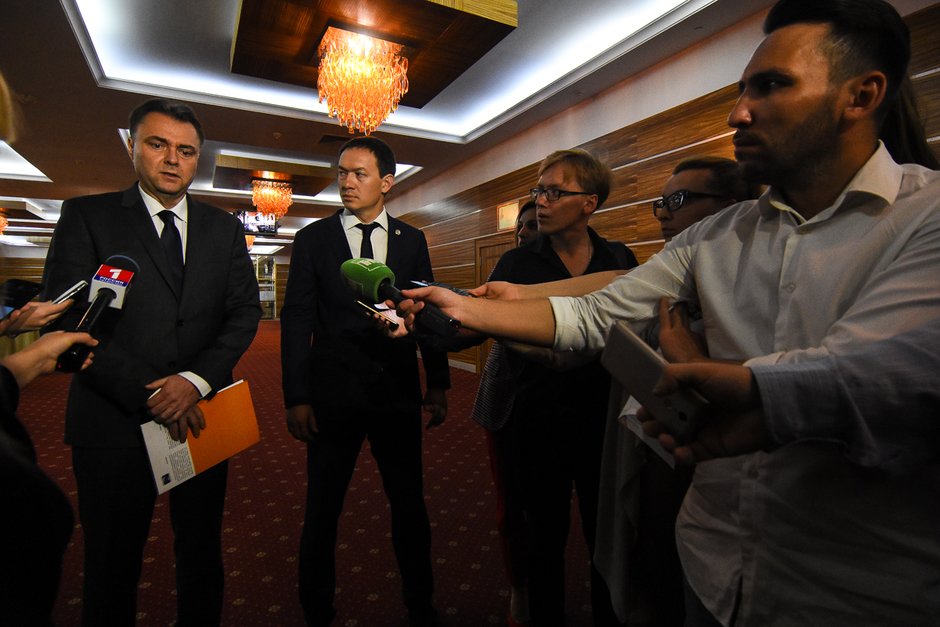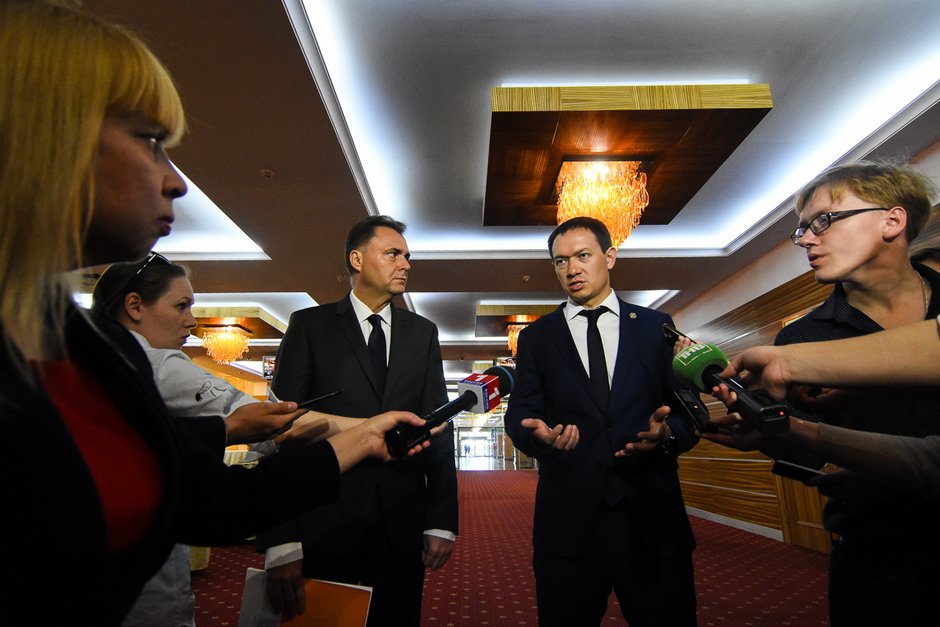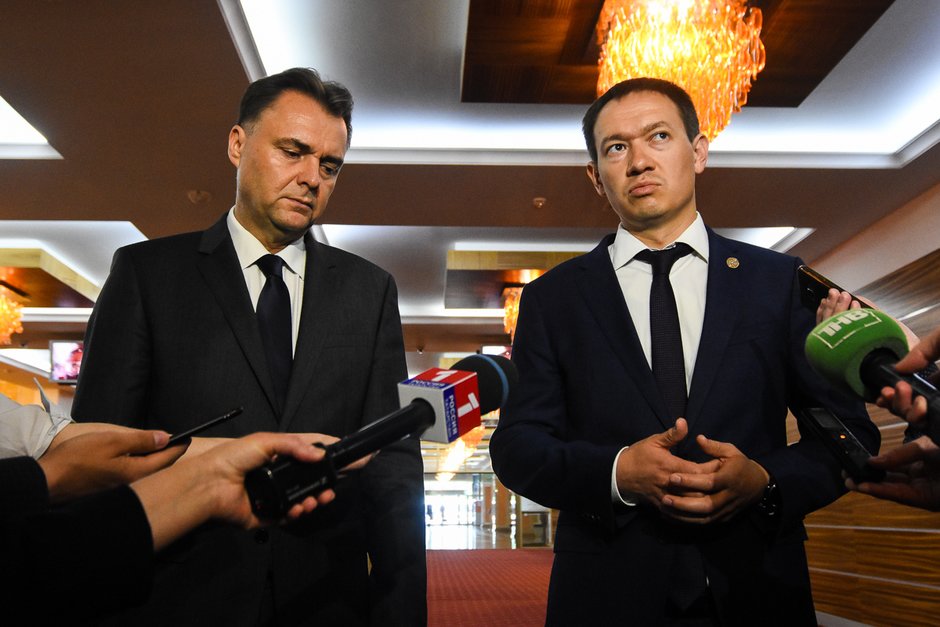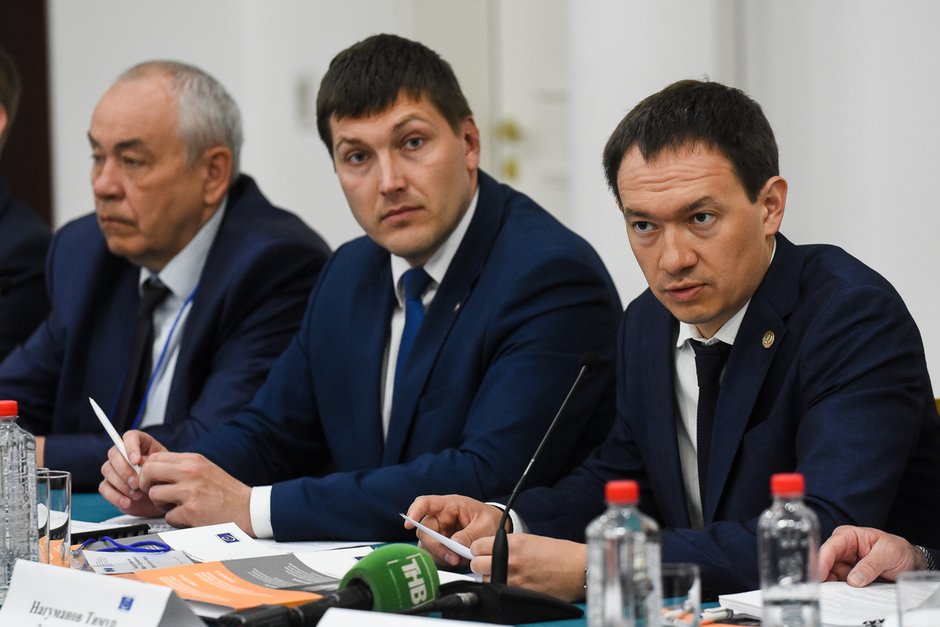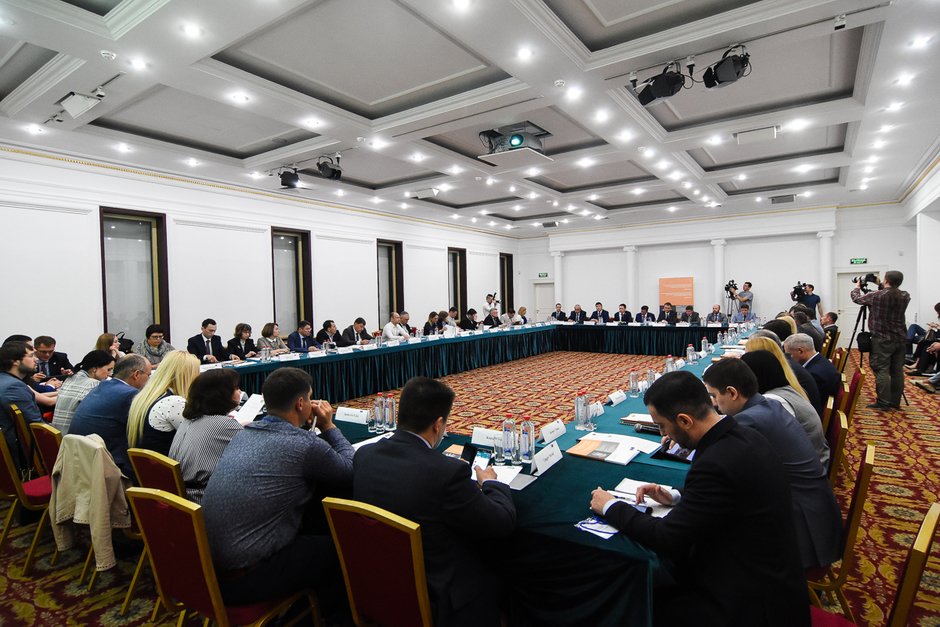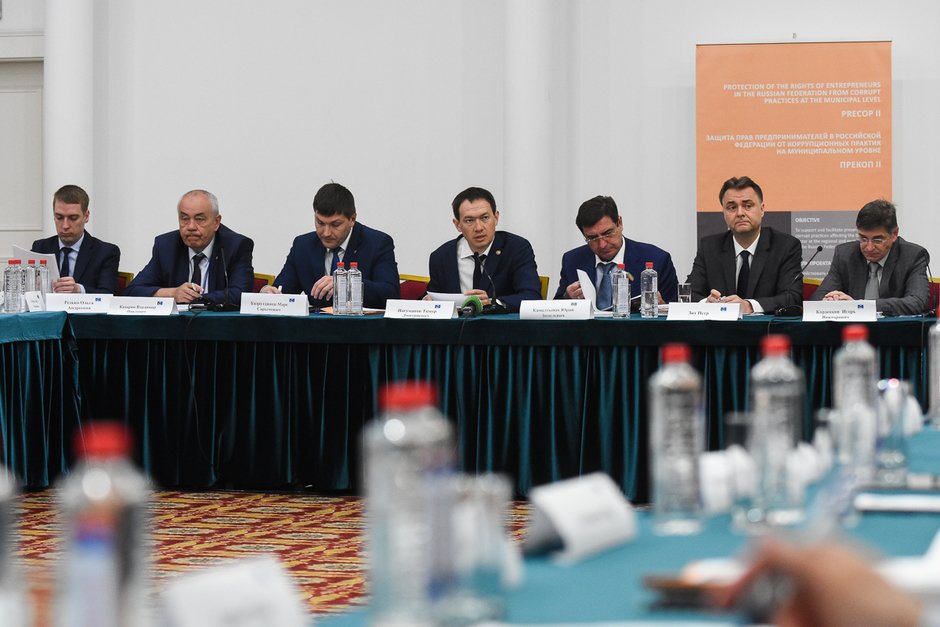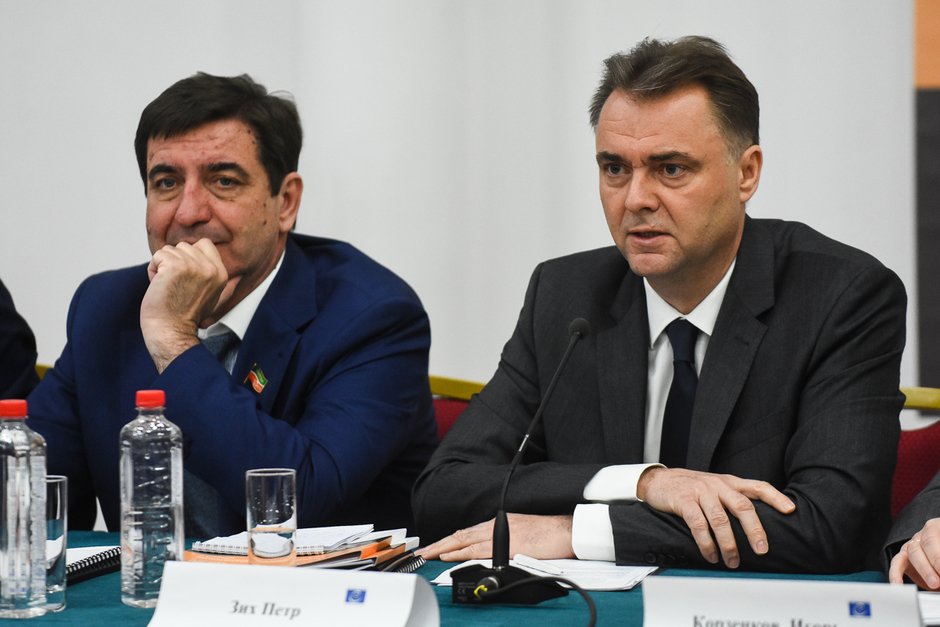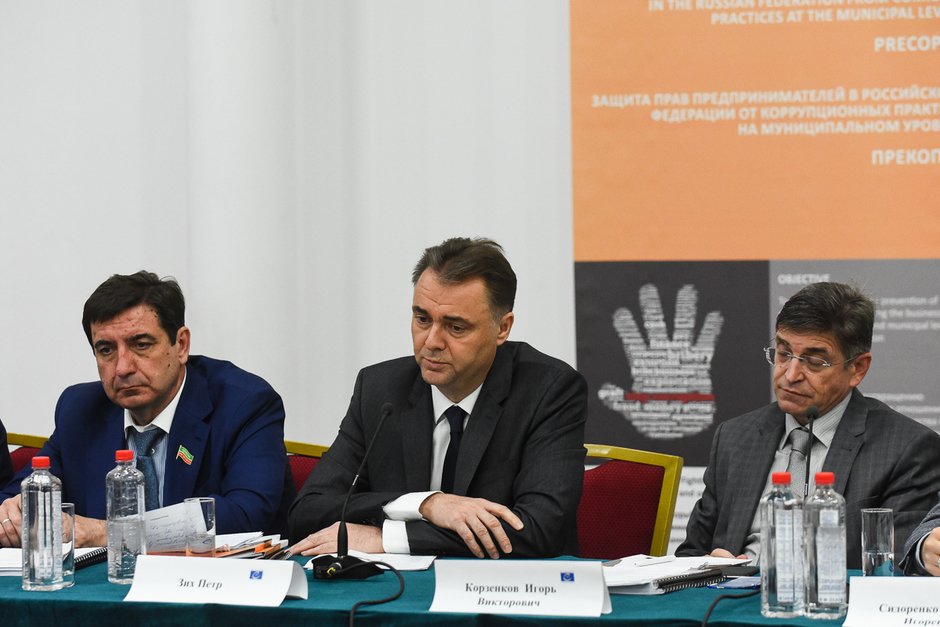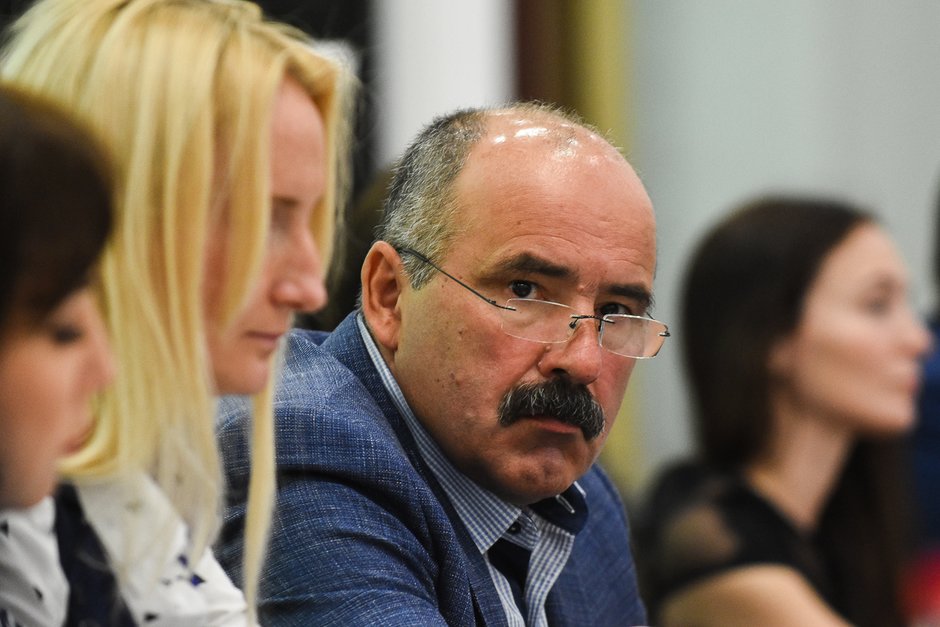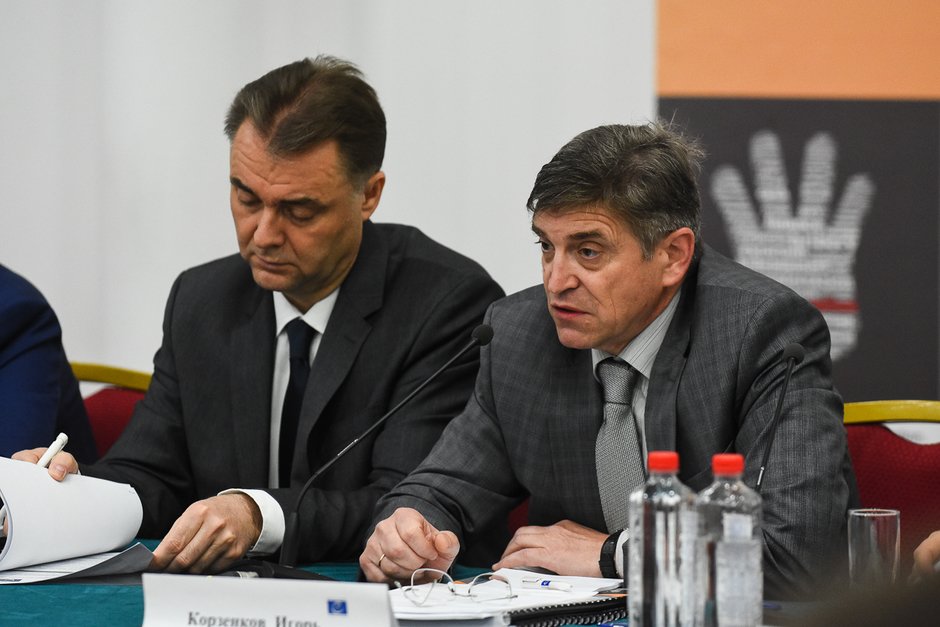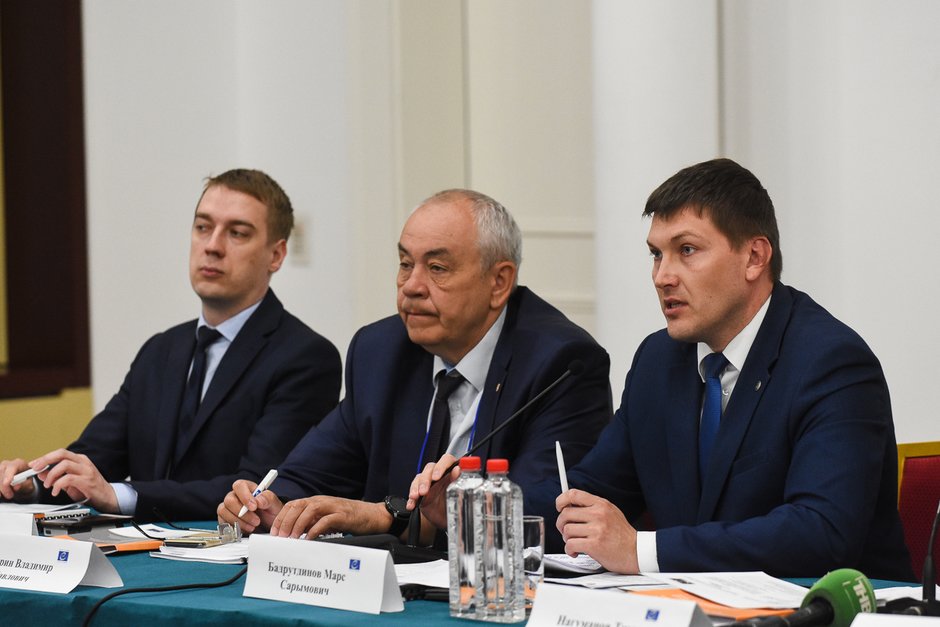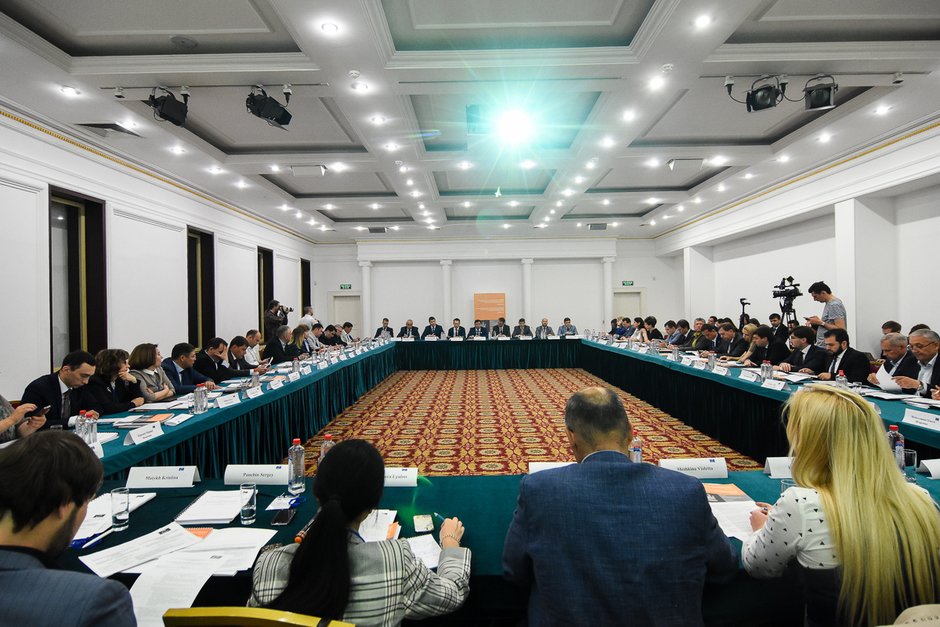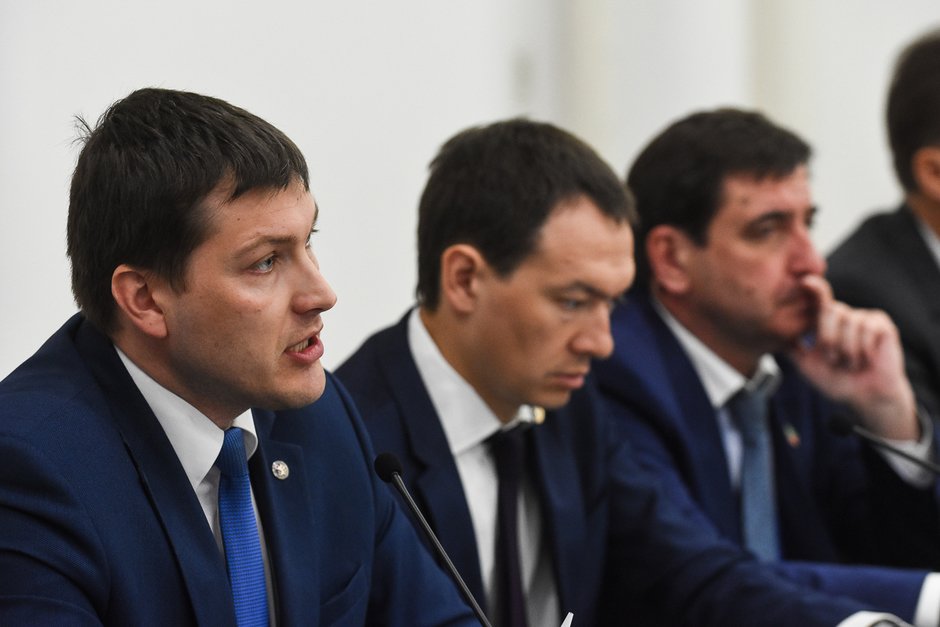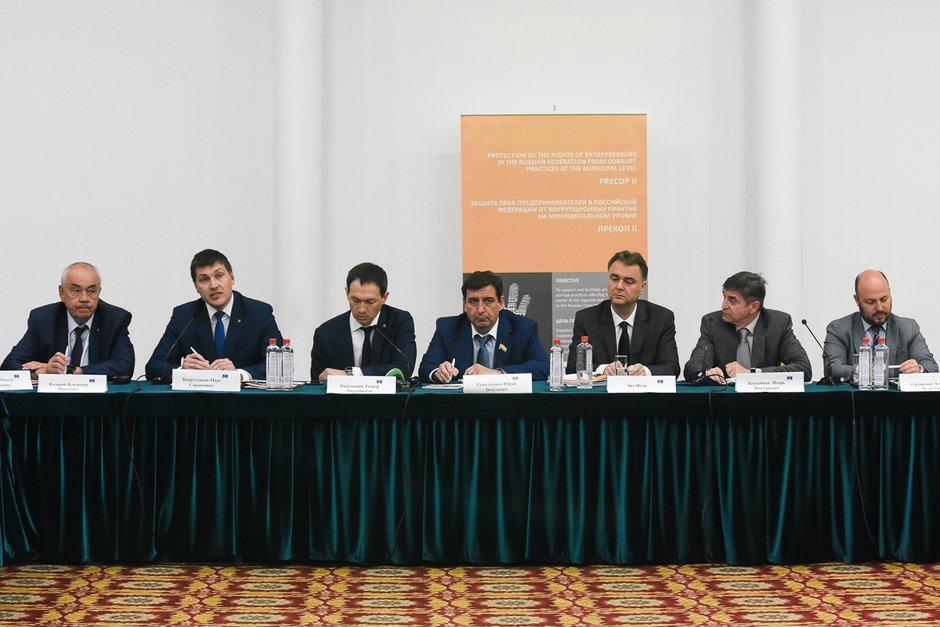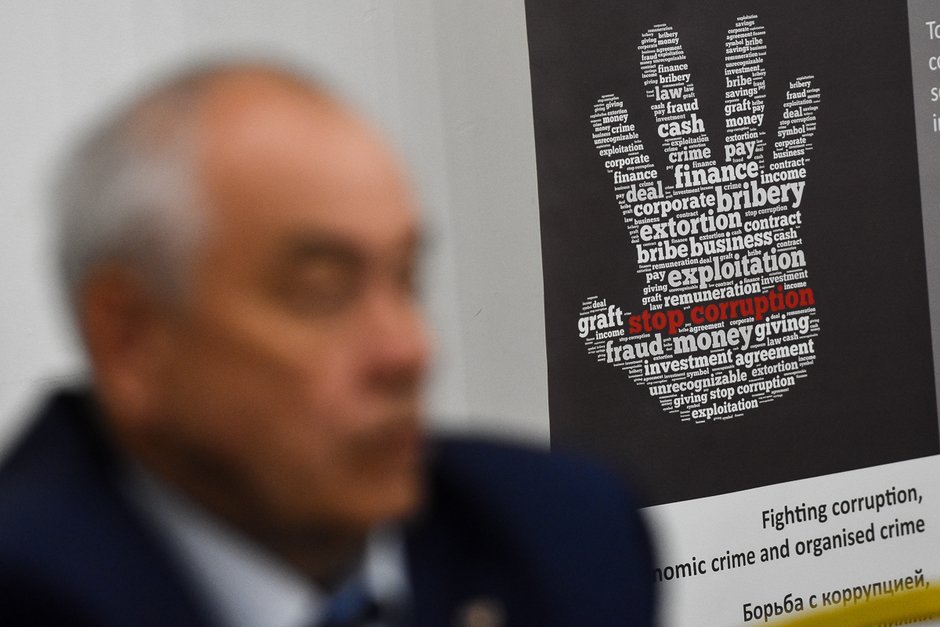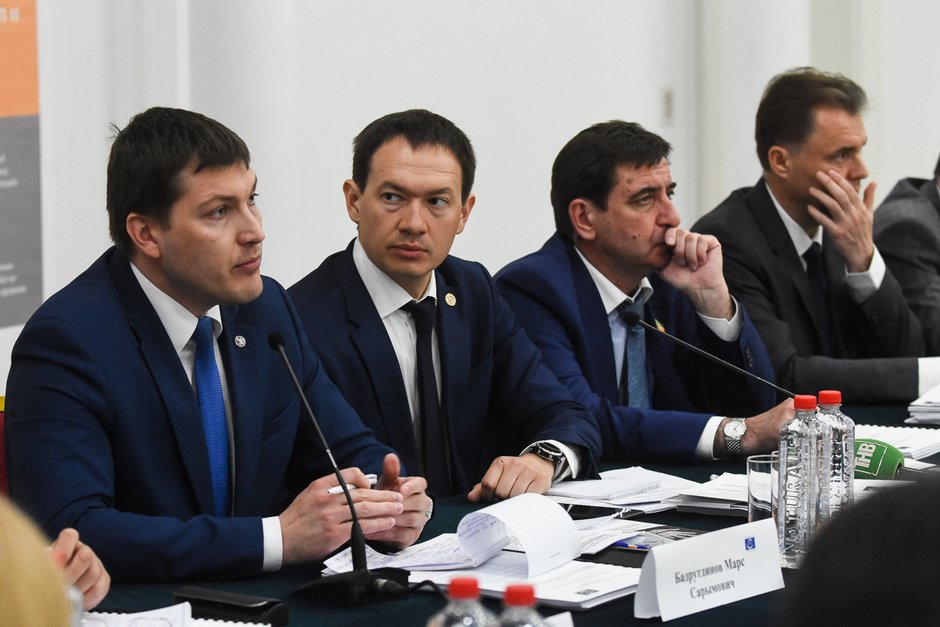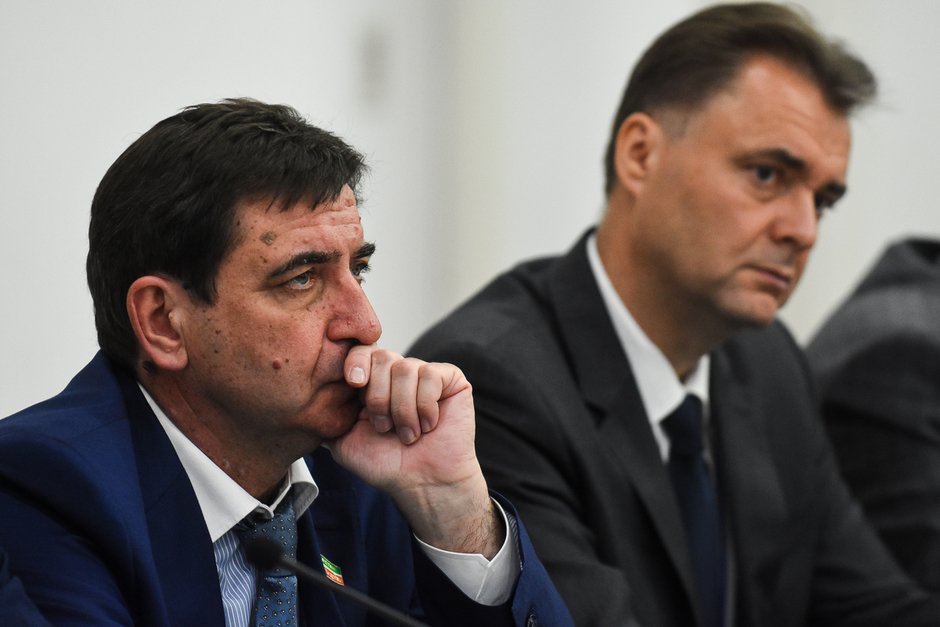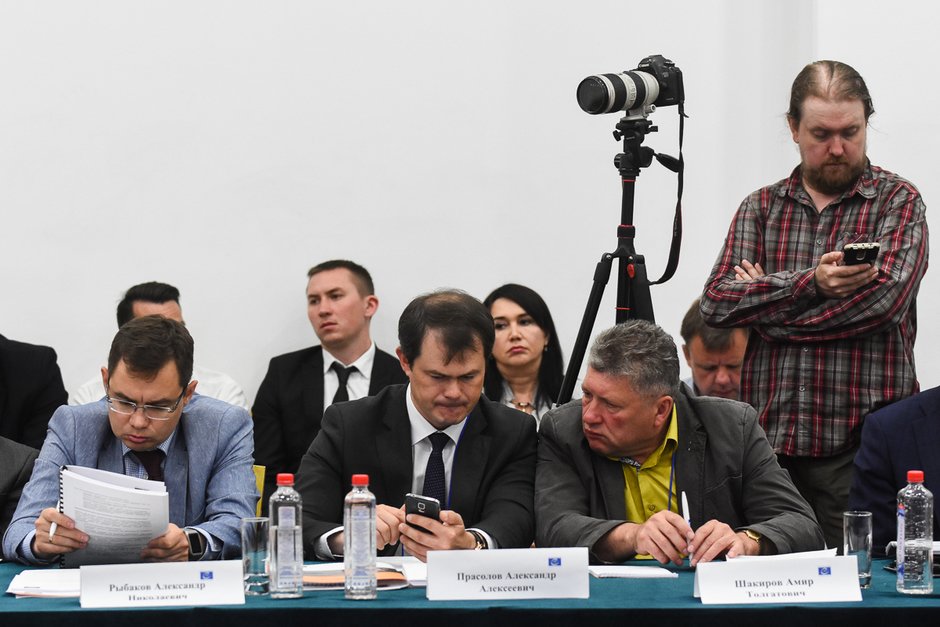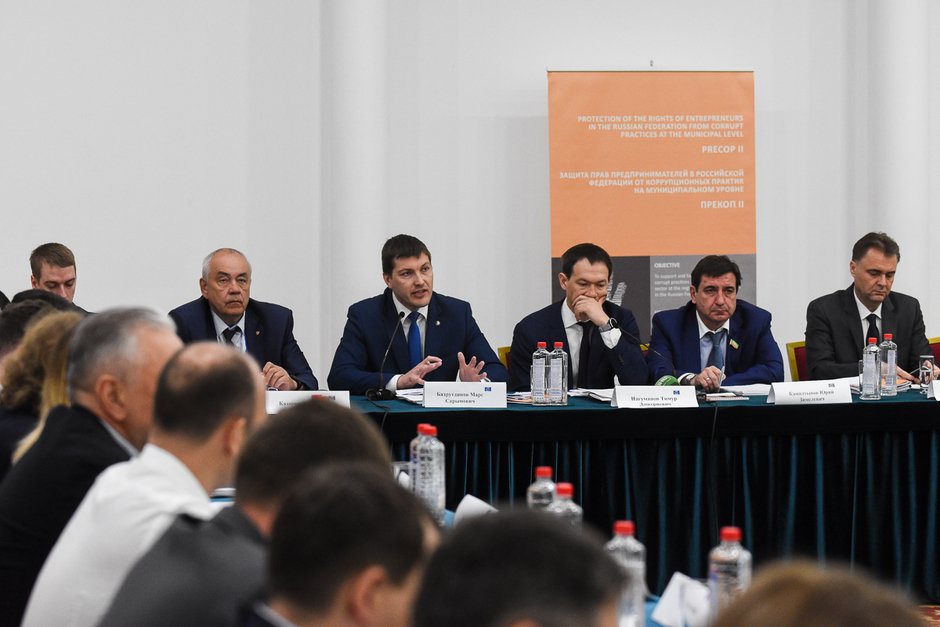''Elements of corruption can be seen in almost every appeal…''
Business ombudsman Timur Nagumanov assured that the Republic of Tatarstan does not show flagrant deviations according to the results of an anti-corruption study of the Council of Europe
Anti-corruption practices in Russia were discussed on 18 May with the participation of the Council of Europe in Korston, Kazan. Initially, it was reported that within the framework of the event they would present a study in 15 Russian regions, including Tatarstan, but specific data on the republic was not announced. However, as found out by the correspondent of Realnoe Vremya, over the last 7 years in Tatarstan the number of people facing corruption has declined from each every fifth to every eleventh. Read the details in our material.
Tatarstan – without flagrant deviations
The Council of Europe presented a study in Kazan aimed at fighting corruption in 15 regions of Russia, including Tatarstan, on May 18.
As explained by the head of the Council of Europe Programme Office in Russia Petr Sich, this is one of the projects of cooperation with the Russian authorities. Its first part has already cost 1,5 million euros, now they are implementing its second part. In 2015, a similar meeting was held in Kazan. In addition to representatives of the authorities, Russian business ombudsmen also took part in the discussion. Tatarstan ombudsman Timur Nagumanov was the moderator of the meeting. According to him, this project allows for a greater systematization of the work with which they, authorized representatives for the rights of entrepreneurs, face every day.
''I can say that the Republic of Tatarstan does not show any flagrant deviations according to the results of the study. But we are a large region, the work to combat corruption is systematic, and, of course, most of the typical stories that entrepreneurs get into are also typical for us. We combat them, but here we are talking about how to systematize and to develop together some approaches and solutions using the experience of the Council of Europe, colleagues from European countries who have already gone this way of developing the market economy to overcome the primary manifestations of corruption,'' Nagumanov said.
1,500 appeals a year and only dozens concern corruption
According to the business ombudsman from Tatarstan, they received about 1,500 appeals last year.
''We don't distinguish separately — corruption or not corruption, because almost in every appeal it is possible to see elements of corruption, but it is also possible, so to say, to work with them,'' the business ombudsman continued.
There are also appeals from entrepreneurs specifically over the facts of corruption in the republic. As noted by Nagumanov, there are no more than a few dozen of them a year, and they are worked out together with the Presidential Anti-Corruption Department. Basically, according to the business ombudsman, they are addressed concerning land and property issues, as well as due to inspections and criminal prosecutions of entrepreneurs. At the same time, the number of appeals is growing by 5-10% year on year.
''The growth is not really very large. It is sometimes associated with some deviations. For example, the incident with Tatfondbank led to a certain growth. In general, the number of appeals is growing every year, primarily because more and more entrepreneurs become aware about us. This word of mouth, which, like a flywheel, spins, it gains momentum, and people are beginning to address us more and more,'' Nagumanov commented.
As Deputy Chairman of the State Council of the Republic of Tatarstan and Deputy Chairman of the Commission for coordination of anti-corruption work in Tatarstan Yury Kamaltynov noted in his welcoming speech, there are some successes in the fight against corruption in Tatarstan, ''but at the same time, we have not achieved serious results that would satisfy us.''
Unfortunately, the head of the Department of Anti-Corruption Policy of the President of the Republic of Tatarstan, Mars Badrutdinov, declared in the programme, did not attend the meeting of the Council of Europe, deputy head of the department Ivan Gushchin did instead. He said that according to the results of sociological research they see that corruption coverage in Tatarstan is reducing. If in 2011 every fifth Tatarstan citizen faced corruption, today it is every eleventh.
Today in the republic about 70 percent of civil servants provide information about income. Last year, about 500 inspections were carried out on them, as a result of which 370 civil servants were brought to justice, and a ''number of responsible persons'' were dismissed, including in connection with loss of confidence.
Without Tatarstan, but with Bashkiria in the anti-rating
The Group of States Against Corruption (GRECO) annually publishes a report on the state of corruption in European countries. As noted by Petr Sich, last year a report on how Russia was implementing the recommendations on the fight against corruption was published. I must say, the work of the country was evaluated at a high level, recognizing that most part of the expert advice were executed. In Europe, according to the next report in May of this year, there is the following situation: many of the laws adopted are difficult to implement, and 30% of the recommendations of experts on fight against corruption are not respected.
According to the study presented by experts of the Council of Europe Viktor Kharchenko and Alexey Sidorenko, 25 to 60 percent of all complaints in the pilot regions (Tyumen Oblast, Tver Oblast, Karelia and Krasnodar Krai) relate to the actions or inaction of local authorities in 2015-2016. In Bashkiria, complaints about the government took the second place, losing the leadership in the anti-rating to the tax service.
Initially it was stated that the study was conducted in 15 regions of Russia. These are Tatarstan, Bashkiria, Udmurtia, Karelia, Arkhangelsk Oblast, Irkutsk Oblast, Kursk Oblast, Rostov Oblast, Tver Oblast, Tyumen Oblast, Smolensk Oblast, as well as Krasnodar Krai, Primorsky Krai and Stavropol Krai. However, it is not clear for what reasons the data were announced only for six regions. In addition to the above mentioned regions, Yaroslavl Oblast was among them. It is possible that all the data was distributed to all participants of the meeting, but, unfortunately, the organizers did not share them with journalists.
Therefore, what results were made, in particular, concerning Tatarstan, remains a mystery. Nevertheless, the meeting with representatives of the Council of Europe and business ombudsmen from the regions continued until five in the evening. The programme included both discussion of corruption risks in the sphere of public services and corruption practices affecting the procurement process at the municipal level in Russia, as well as analysis of real situations in the regions.
